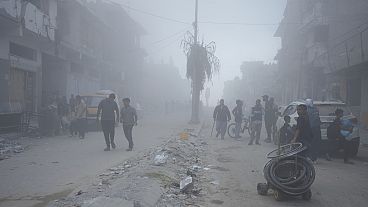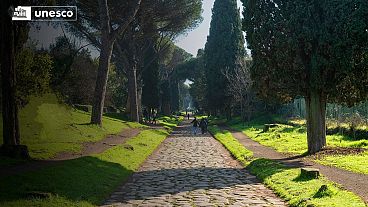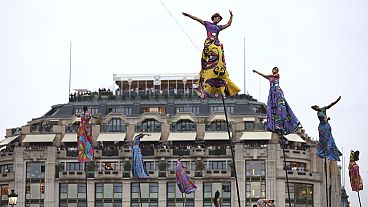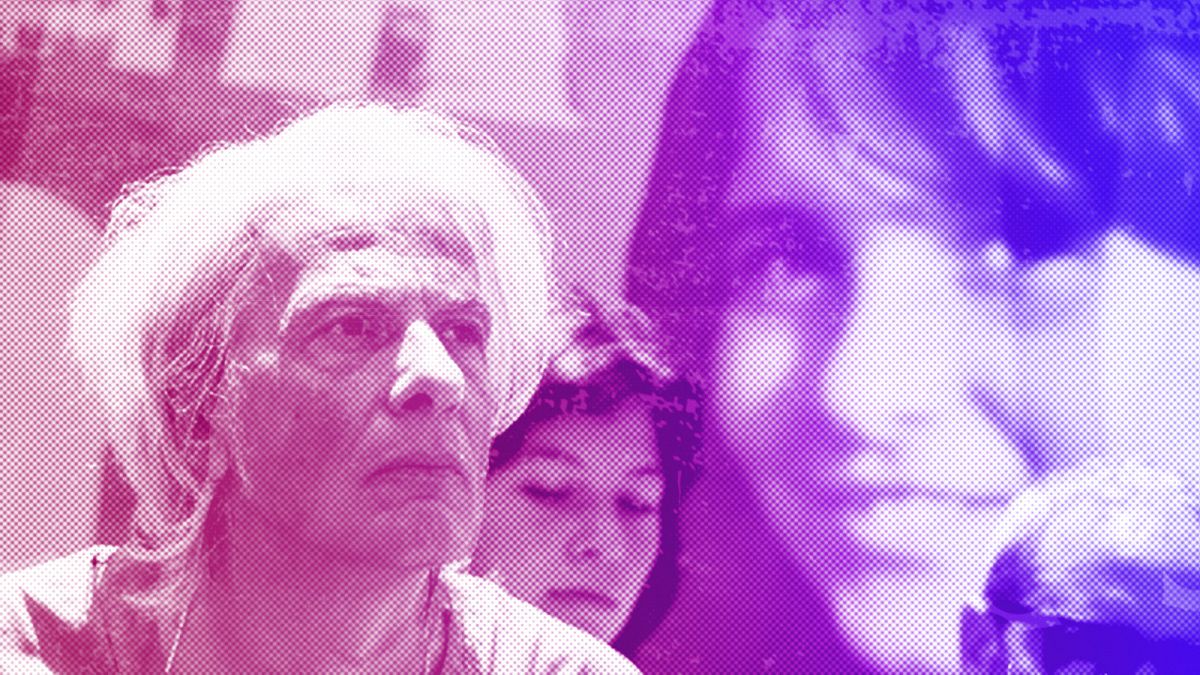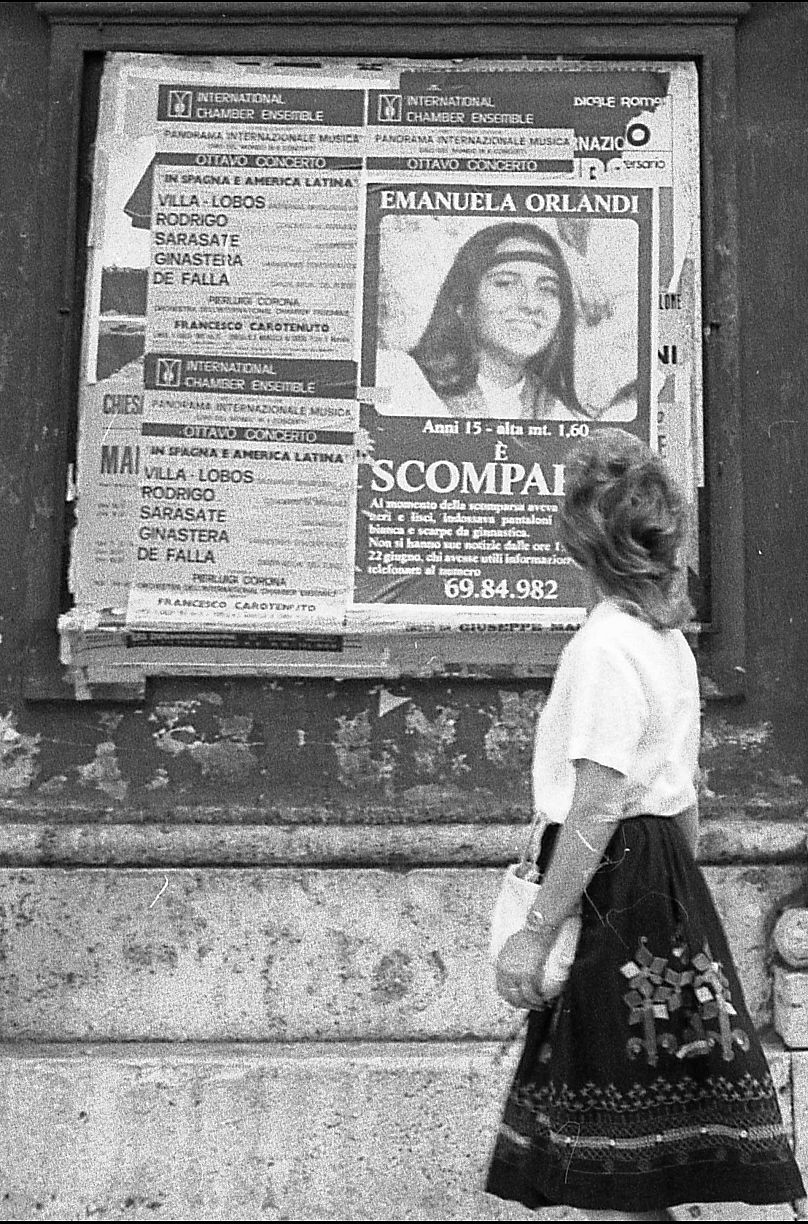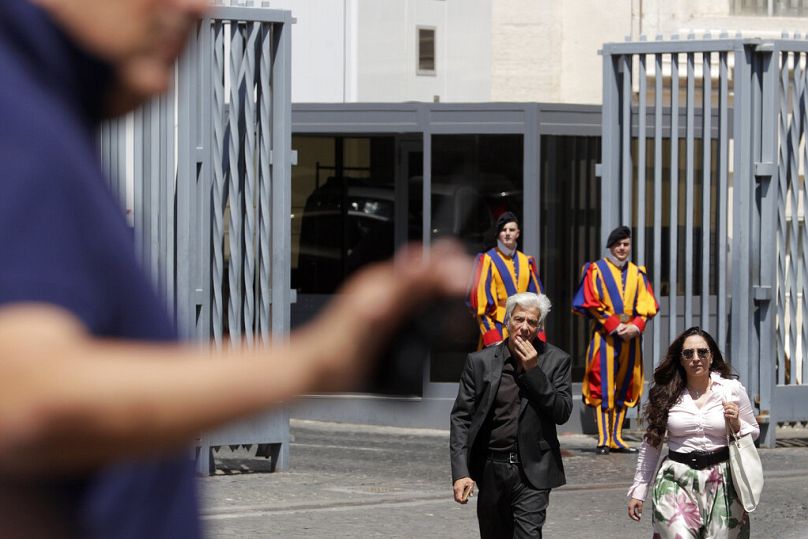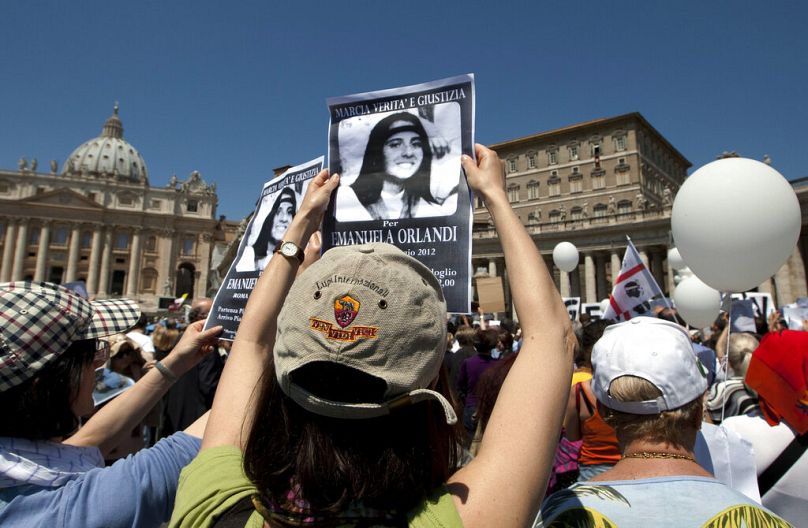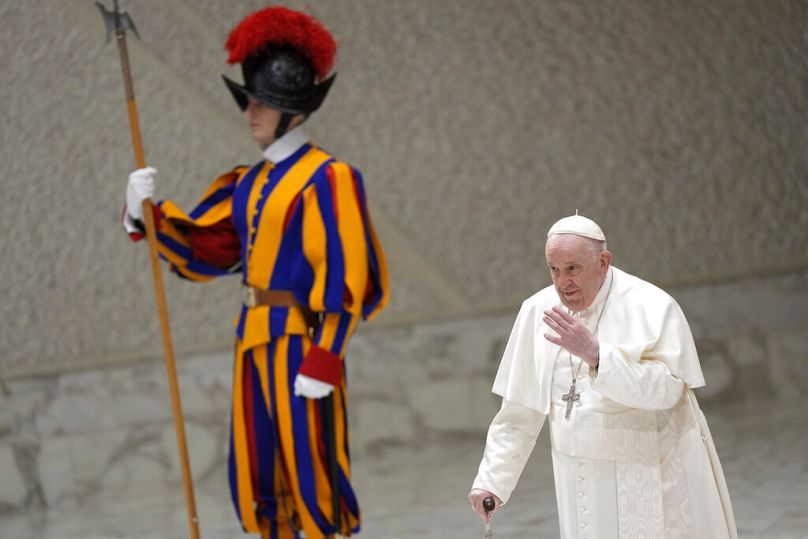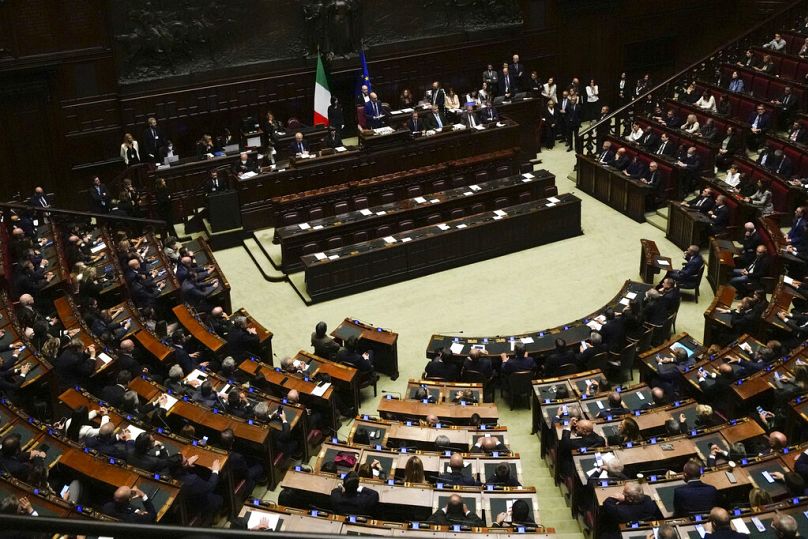Italian politicians and the judiciary have always passively accepted the will and power of the ecclesiastical hierarchies. I hope that is now a thing of the past, Pietro Orlandi told Euronews.
When the 15-year-old Emanuela Orlandi left her apartment in Vatican City for her flute lesson on a hot and humid summer day in June 1983, nothing seemed out of the ordinary.
The teenage daughter of a Vatican clerk, however, did not return home that evening. Her parents and four brothers and sisters never saw her again.
Emanuela's disappearance launched a four-decades-long pursuit of truth and an avalanche of speculations linking the case to everyone from Pope John Paul II's assailant Mehmet Ali Ağca and Rome's organised crime group Banda della Magliana to the secret services of several states.
Her story gripped the attention of the Apennine Peninsula for nearly 40 years, but it gained worldwide fame after the release of a much-lauded documentary, "The Vatican Girl," in 2022.
The spike in interest prompted both Italian and Vatican authorities to pledge to new inquiries into the case, with hopes again high that what happened to Emanuela could be finally revealed.
Euronews View spoke to Emanuela's brother, Pietro Orlandi, who for four decades sought to compel the Vatican to tell all that it knows about his sister's disappearance.
Euronews View: You’ve been involved in advocating for your sister’s cause for decades. How do you feel now that there’s renewed interest in Emanuela, both internationally and in Italy?
Pietro Orlandi: I feel very positive about this because we succeeded in not letting the story be forgotten.
Perhaps those who for years did everything they could to hide the truth have realised that silence was useless because we will never give up what is our right: to know what happened to Emanuela.
Euronews View: You were a teenager when Emanuela disappeared. What was your own life path like?
Pietro Orlandi: I had a very normal life, like many other young people.
I had my friendships, my expectations in life, I thought a lot about the future, and I had many dreams to fulfil. I was and am very close to Emanuela, with whom I shared so many things.
Unfortunately, someone didn't allow Emanuela to choose her own life path, and as a result, I didn't get to have a choice either.
Euronews View: Most of those who found out about your sister’s disappearance from “Vatican Girl” are unaware of the fact that you worked on a programme called "Scomparsi" ("The Missing"), where you retraced the stories of those who found themselves in a situation like yours. How do those who also have a missing family member feel about the way their cases are being handled in Italy?
Pietro Orlandi: Unfortunately, there are many cases of disappearances — in Italy and worldwide — and most of them are forgotten too quickly.
Too often, people are left to handle it themselves, and not everyone has the strength to react and demand their actual rights be enacted.
At times, I feel lucky because I have had the opportunity to speak about it, as I am doing now, and to maintain people's interest.
So when I can, I invite the families who have silently borne the burden of their tragedy to events so that Emanuela's voice can also be theirs.
Euronews View: You have been very involved in the pursuit of truth in your sister’s disappearance and abduction, including going face to face against one of her alleged kidnappers, but also the pope himself. What kind of energy and drive is required to persist with finding out the truth for four decades?
Pietro Orlandi: The main drive comes from my will not to passively accept this injustice, especially when it is known that there are people, especially in the Vatican, who are aware of what happened — people who, for forty years, have been doing everything they can to keep the truth hidden.
But it is also the thousands of people who, with their solidarity, presence, and, I must also say, affection, continue to support me and make me feel like I'm not alone.
I certainly cannot forget my wife and children, who have always supported me in every initiative I have undertaken, from petitions to the popes to demonstrations all the way to St. Peter's Square.
Euronews View: For the past 40 years, the Italian government has not investigated your sister’s case. Now the executive branch is holding back on passing a bill that would create an inquiry commission into some of the missing cases, including Emanuela’s. Why do you think the Italian political leadership has hesitated for so long — and might hesitate once more, according to recent news out of Rome?
Pietro Orlandi: Over the years, the Italian Parliament did not deal with the affair because the Rome Public Prosecutor's Office had investigated it in two lengthy enquiries, which were archived in 2016.
These enquiries had many dark sides, many aspects that were dealt with negligently and the shadow of the Vatican, who have never wanted to cooperate, hung over it all.
They even rejected international rogatory letters for judicial assistance and turned their back on one of their citizens — because Emanuela is a Vatican citizen, the only Vatican citizen who has ever been kidnapped.
Now this proposed parliamentary commission, which is about to start, will hopefully succeed in shedding light on what has been unclear in the relationship between the Italian state and the Vatican.
I'm also hoping it will clarify the irregular aspects of the behaviour of the state apparatus itself, by its secret services and the meddling of the foreign secret services as well.
Euronews View: How has the climate in Italy — and the Vatican — changed since Emanuela’s disappearance in 1983? Do you think it is more conducive to finding out the truth, and if so, how?
Pietro Orlandi: A few days ago, the Vatican agreed to open an investigation into Emanuela's abduction for the first time. That's an important step.
I expect that this enquiry will be honest and transparent with the desire to shed light on whatever the truth behind this abduction may be.
I also hope the two states will cooperate. The psychological subservience of the past — especially in the early years of this story — was always there on the part of the Italian state towards the Vatican.
This has meant that Italian politicians and the judiciary have always passively accepted the will and power of the ecclesiastical hierarchies. I hope that now becomes a thing of the past.
Euronews View: Euronews English reaches a wide European audience. What would be your message to them — knowing that some of those who might know the truth about Emanuela’s disappearance might be among them?
Pietro Orlandi: My appeal has always been addressed to those who surely know what happened but insist on remaining silent.
Forty years have passed, and even the smallest clue could help.
We will never stop. There will be no power, however strong, that can make us retreat a single inch until we get to the truth and justice for Emanuela.
This article was originally published on 3 March 2023.

